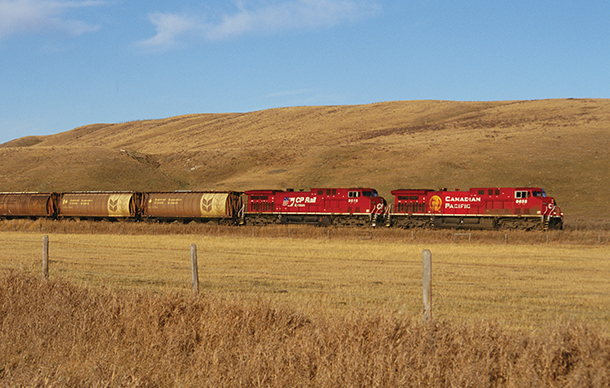VANCOUVER – BUSINESS – Strong overseas demand for Canadian grain products—a main driver of the overall record mid-year cargo volumes—resulted in record mid-year volumes of bulk grain, up 20% to 16.5 MMT compared to mid-year 2020 and up 35% from 2019. Total foreign tonnage and foreign exports resulted in 60.3 and 52.0 MMT, up 4% respectively, compared to mid-year 2020 volumes, due to strong increases in grain and coal.
The Vancouver Fraser Port Authority today released the 2021 mid-year statistics for goods moving through the Port of Vancouver. From January 1 to June 30, 2021, overall cargo volumes through Canada’s largest port reached a record high of 76.4 million metric tonnes (MMT), up 7% from 2020 mid-year, and 5% above the previous record set in 2019. Sectors that experienced strong growth include grain and containers, both of which hit new records in 2021.
Increases in wheat, up 23%, barley, up 151%, and animal feed, up 30%, contributed to this new bulk grain record. Metallurgical coal increased by 11% while thermal coal remained flat. In fertilizers, potash exports increased by 0.3% from last year and sulphur decreased by 20%.
“Record grain volumes through the Port of Vancouver once again over the first half of the year demonstrate the continued growth in the global demand for Canadian agricultural products,” said Robin Silvester, president and chief executive officer at the Vancouver Fraser Port Authority. “Over many years, we have worked with partners to support the growth of the agricultural sector, and over the last decade there has been a very significant amount of investment in the port and the surrounding gateway by grain terminals, governments, railways, port customers, and the port authority, with much of that investment directly benefitting the grain sector.”
Container quantities (measured by TEUs or twenty-foot equivalents) in the first half of 2021 increased by 24% compared to mid-year 2020 to a record 1.9 million TEUs, and 15% above the previous record set in 2019, as a result of the strengthening economy and continued growth in global demand for Canadian products shipped in containers, and Canadian demand for consumer and manufacturing goods from Asia.
To ensure the Port of Vancouver can meet the increasing demand for container trade, the port authority is advancing two container terminal projects at the Port of Vancouver: the Centerm Expansion Project and the Roberts Bank Terminal 2 Project. Construction of the Centerm Expansion Project is well underway and once complete it will meet the anticipated short-term demands of importers and exporters. Even with this increase, the port is forecast to run out of capacity by the mid to late 2020s. If approved, the Roberts Bank Terminal 2 Project will provide a 50% increase to the port’s container capacity and will serve Canadian importers and exporters for generations to come.
The record overall cargo volumes at mid-year in 2021 reflect the continued growth in the agriculture and container sectors. This trend is expected to continue as the long-term outlook for Canadian trade is growing.
“We are encouraged to see the record mid-year cargo volumes through the Port of Vancouver,” added Silvester. “These cargo volumes were made possible due to the dedicated work and commitment of the port terminal operators, marine carrier customers, railways and drayage companies, labour, governments, and the many service providers that support the Port of Vancouver’s importers and exporters.”

